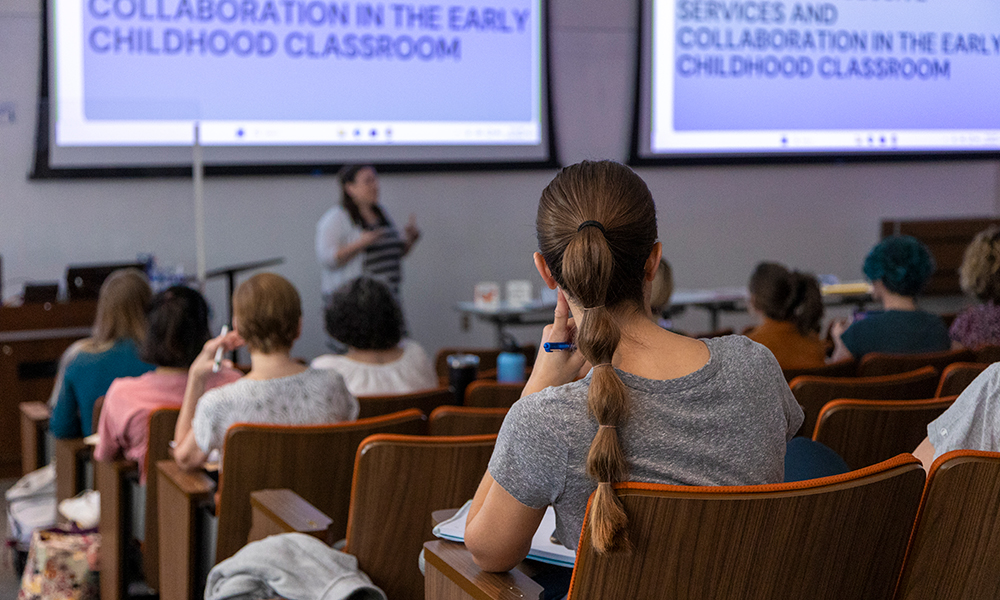Workshop series cultivates competency for CSD students and clinicians
College of Health and Behavioral Studies
The JMU Summer Learning Series: Cultivating Competency, a workshop series hosted by the Communication Sciences and Disorders (CSD) Department in the College of Health and Behavioral Studies, will provide enriching and engaging professional development to students, clinicians and community members working in CSD fields.
The workshop series was made possible due to a mini-grant from the JMU Faculty Senate. The Faculty Senate along with representing faculty in policy creation and consideration, allocates mini-grants to faculty for endeavors that support the JMU vision statement, “to be the national model for the engaged university.”
“This project is designed to tap into all three levels of engagement: engaged learning for our students and colleagues, engaging in professional development to improve services to our community, and civic engagement, as our talks will touch on aspects related to advocacy within our field,” said CSD professor Erin Clinard. Clinard and her colleague, CSD professor Michelle Dawson, collaborated in applying for the grant and developing the workshop series.
“We’re able to bring leaders in the field from up and down the east coast here, to make those leaders accessible,” said Dawson. “We’ve created this space for the immediate local clinicals to meet our students.”
Each Friday in June and July, two 90-minute workshops will be led by speakers in speech-language pathology and related fields. “It’ll be a combination of a presentation from the speaker and a discussion for ideas on how to apply the concepts and the topics in practice,” said Clinard.
Some topics for the presentations include inclusivity, ethics, and interprofessional opportunities within the fields of Communication Sciences and Disorders.
CSD prepares graduates to be generalists in the fields of speech-language pathology and audiology with students obtaining a wide range of expertise across ages and populations. “The topics [for the Summer Learning Series] are intended to address gaps that are common for clinicians, but also highlight areas that are emerging in our fields,” said Clinard. “For example, there’s a big movement in our professions to focus on neurodiversity affirming care and trauma informed care.”
Current graduate students in the speech-language pathology programs (online and residential), as well as audiology doctoral students, will be attending the Summer Learning Series as part of their class requirements this summer. “I am excited for them to hear from practicing clinicians and go back into the clinic the next Monday and start implementing some of the things they heard about during Friday’s workshop,” said Clinard.
Dawson is thrilled about the lineup of presenters for the Summer Learning Series. “Erin and I have connected to some of the greatest minds in our profession” over the years, she said, and she looks forward to bringing some of these people to the community in Harrisonburg.
“In CHBS, we have a mission and a passion for interprofessional education,” said Clinard. Bookending the series are presenters from related fields, including Meg Druga, Coordinator for VDOE’s Training and Technical Assistance Center at JMU. Her presentation will focus on inclusive services in early childhood classrooms. The final presenters of the series will be Jennifer Ruckner and Beth Cooper, an SLP and an Occupational Therapist, respectively, who work together at Tots to Teens Therapy Services. Their presentation will share practical strategies for sensory tools and self-regulation for youth.
“We are so thankful to the Faculty Senate and to the Provost Office for offering such generous funding to support faculty endeavors,” said Clinard. “It’s really exciting what we can create with a mini-grant and the power that can have for our students and our community.”
